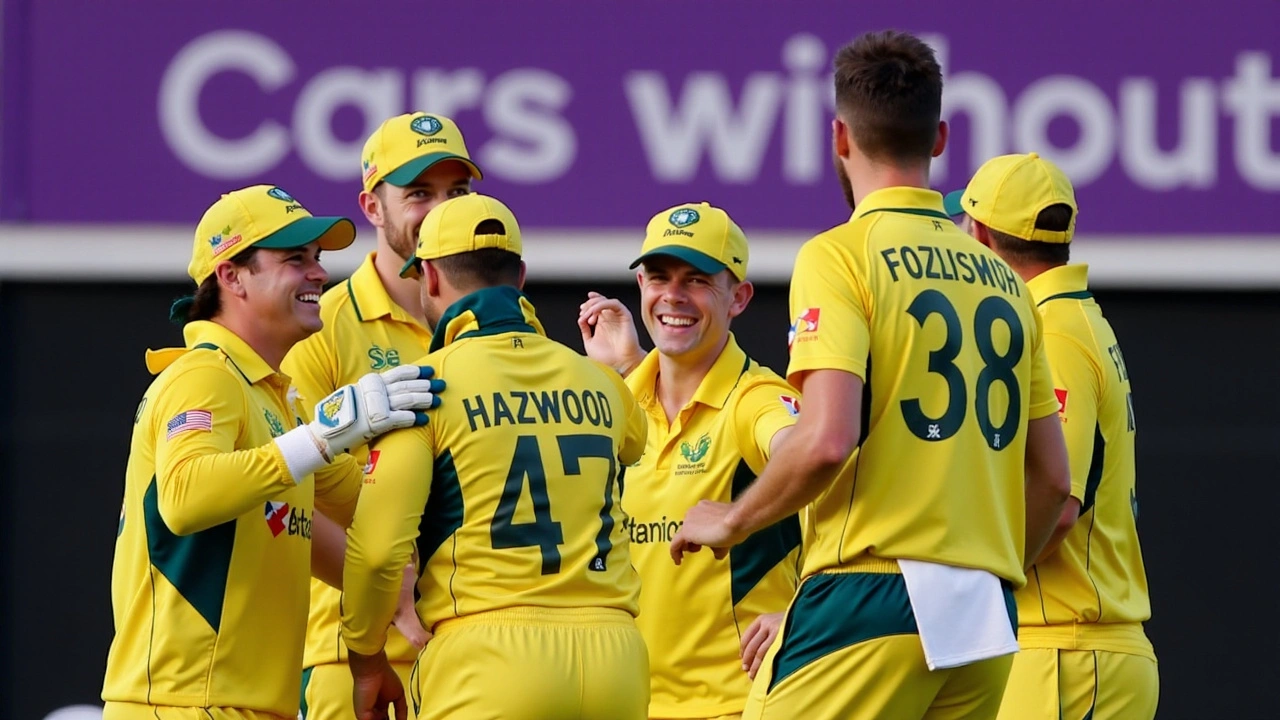
Australia's Strategic Win at Headingley: A Detailed Look
In a thrilling encounter on September 21, 2024, Australia triumphed over England by 68 runs in the second One Day International (ODI) at Headingley. This victory wasn't just a game-winner; it was a strategic masterstroke that put Australia 2-0 up in a five-match series, shifting the momentum squarely in favor of the tourists. The scene at Headingley was set for a gripping contest, and it certainly delivered.
Setting Up the Game: Australia's Innings
Australia, batting first, set an imposing target of 271 runs. The opening batsmen laid a solid foundation, with Aaron Finch and David Warner putting up an admirable partnership. Finch’s calculated shots and Warner’s aggressive approach provided a balanced start. Warner’s timely boundaries coupled with Finch’s precision ensured that Australia had a steady yet potent beginning.
Middle-order batsmen like Steve Smith and Marnus Labuschagne built on this momentum. Smith, known for his technical finesse, played a crucial role in nudging singles and rotating the strike, while Labuschagne stepped up to anchor the middle overs. He navigated through the English bowling with a deft touch, making sure the scoreboard ticked consistently.
As the innings progressed, the lower-middle order, including players like Marcus Stoinis and Alex Carey, accelerated the innings. Their powerful shots and ability to find gaps in the field added valuable runs in the death overs, pushing the final score to a formidable 270/7.
England's Response: A Struggling Chase
Chasing 271, England's response faced hurdles right from the start. Openers Jason Roy and Jonny Bairstow struggled against the disciplined Australian bowling attack. Mitchell Starc and Pat Cummins showcased their prowess with the new ball, keeping a tight line and length that restricted the run flow and built early pressure on the English batsmen.
England’s hope hinged on their prolific captain, Joe Root, and the flamboyant Jos Buttler. Root’s task was to anchor the innings, but he fell prey to a sharp delivery from Starc, which left England rattled. Buttler, known for his explosive batting, tried to counter-attack but couldn't find his rhythm against the variety spun by Adam Zampa and the tactical pace variations from Josh Hazlewood.
The middle order, including Ben Stokes and Eoin Morgan, attempted to stabilize the situation. Stokes showed glimpses of his hard-hitting abilities but failed to convert his start into a significant score. Morgan, a veteran in game situations like these, found his groove late but couldn’t manage to steer the innings back on track.
A highlight of Australia’s bowling was their strategic use of spinners. Zampa, with his clever variations, choked the English batsmen, while Ashton Agar’s economical spells proved tricky for the chase strategy. This combined effort from both pacers and spinners pegged England back considerably.
Turning Points and Key Moments
The pivotal moments of the match were plentiful. One was the dismissal of Joe Root, which tipped the scales in Australia’s favor early on. Root’s wicket was more than just a dismissal; it was a morale boost for Australia and a significant blow to England's chase.
Another key factor was the death-overs batting by Australia. The runs added in the final five overs by Stoinis and Carey turned a competitive score into a challenging one. Their ability to switch gears under pressure was commendable and demoralized the English bowlers.
Post-Match Reflections
After the match, reflections from both camps highlighted varying emotions. Aaron Finch, Australia’s captain, praised his team's all-round performance. He specifically mentioned the impactful partnerships and the strategic brilliance of the bowlers. Finch’s steely determination was evident as he spoke about maintaining the winning momentum for the rest of the series.
On the other hand, Joe Root expressed his disappointment but remained hopeful. He acknowledged the areas where England faltered but was optimistic about bouncing back in the remaining matches. Root emphasized the need for better execution and consistency, especially in high-pressure chases.
Statistically, the match threw up interesting insights. England’s top-scorer was Jos Buttler with a gritty 47, a testament to his fighting spirit. For Australia, David Warner’s 78 runs stood out, showcasing his dominance at the top order. In the bowling department, Starc and Zampa shared the limelight, ending with impressive figures of 3/35 and 2/42 respectively.
Looking Ahead: The Path Forward
With Australia leading 2-0, the series takes an intriguing turn. England now faces the daunting task of winning the remaining three ODIs to clinch the series. The focus will be on recalibrating strategies and learning from the mistakes witnessed at Headingley.
For Australia, the goal will be to retain this advantage and seal the series at the earliest opportunity. The confidence gained from the Headingley victory will undoubtedly fuel their aspirations. Both teams are likely to analyze their performances minutely, looking to enhance strengths and address weaknesses.
This second ODI at Headingley serves as a cricketing lesson on strategy, execution, and the unpredictable nature of the sport. As fans, we can only anticipate more exhilarating cricket in the matches to come, with the hope that each game tells its unique story of passion, perseverance, and the undying spirit of competition.





